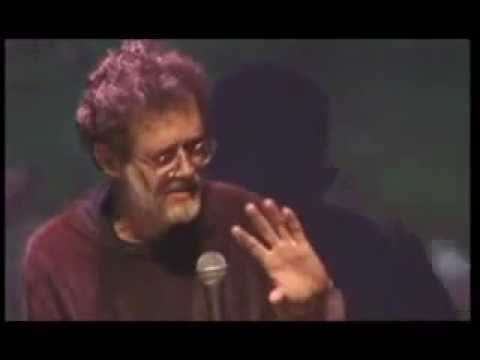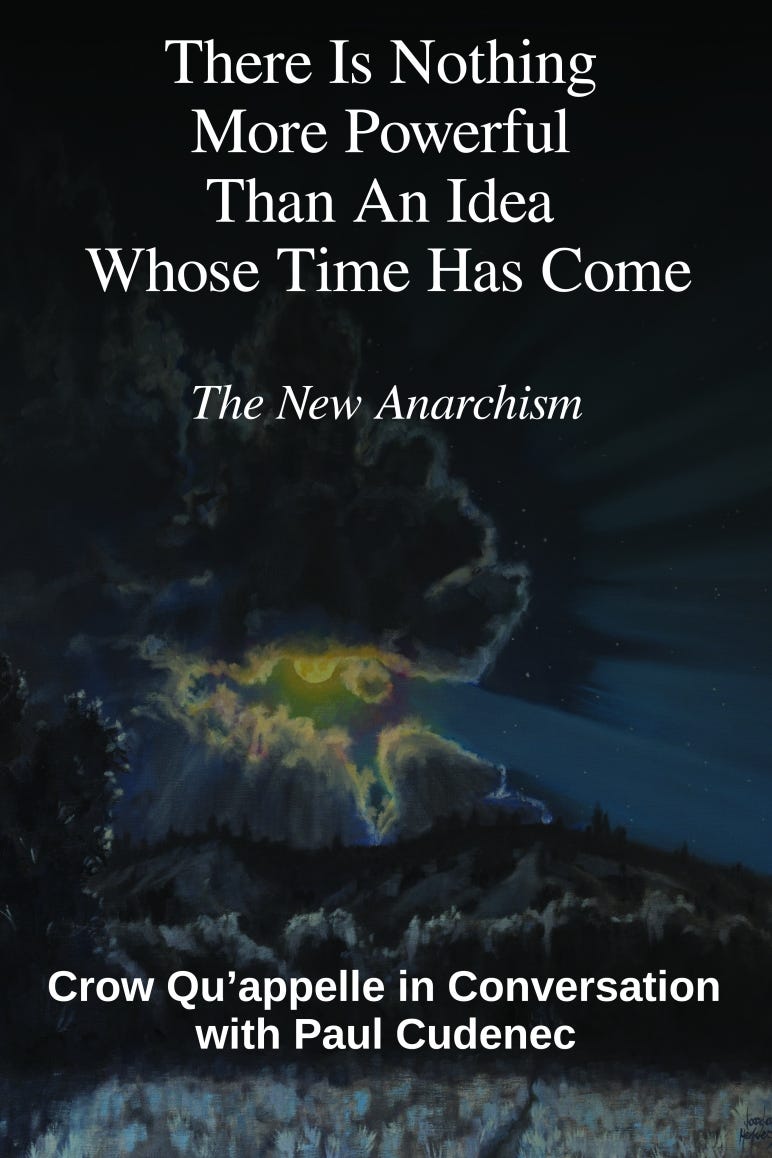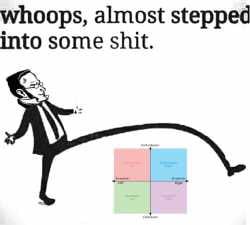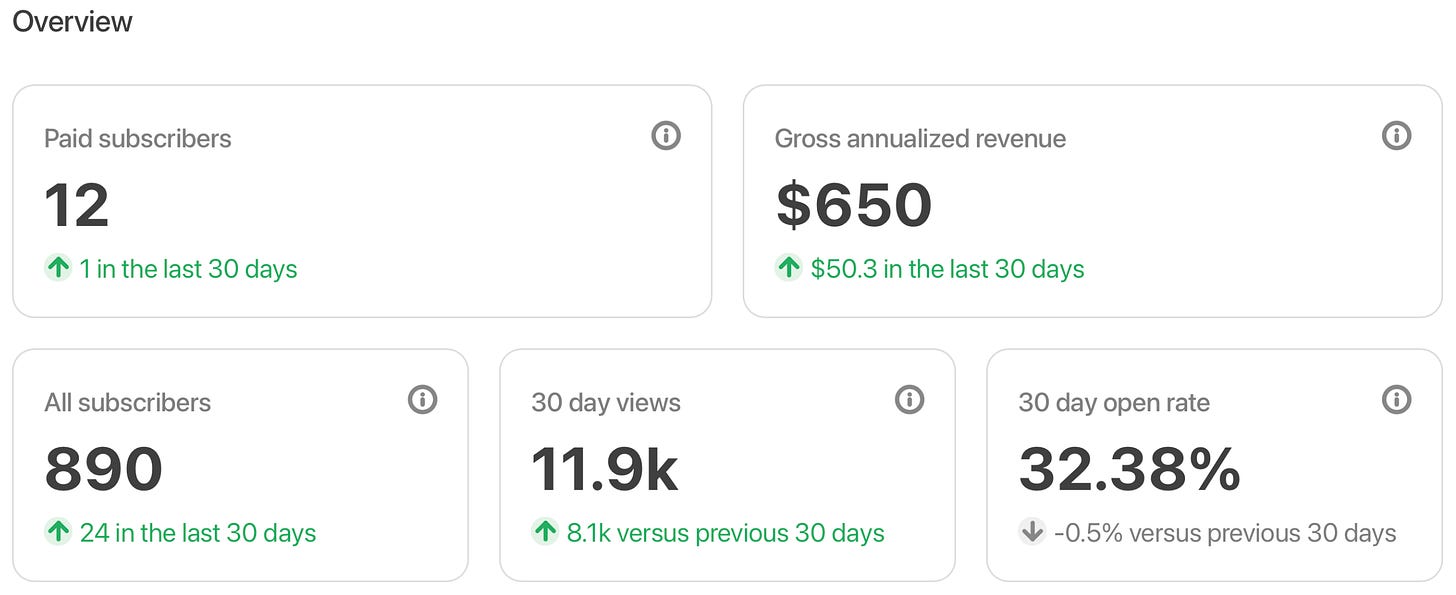PRIMIVITISM VS. PRIMALISM - WHICH IS MORE BASED?
So it turns out that I`m a panjectively primalist anarcho-perrennialist pantheist vitalist animist with Agorist sympathies... SPOILER ALERT: There ain't nothing new about post-left anarchism.
Ted Kaczynski, the notorious ‘domestic terrorist’ and radical author (who died last month) also went into the Woods.
After he was arrested and his work became widely known, he became, for a short time, the darling of anarcho-primitivists such as John Zerzan, and with good reason, as his infamous manifesto makes a devastating case against civilisation, a worthy successor to his intellectual forebears, Lewis Mumford and Jacques Ellul.
It came as something of an awkward surprise then, at least to Zerzan and company, when Kaczynski published The Truth About Primitive Life, which critiques anarcho-primitivsm, highlighting the feeble political-correctness of those who advocate it, along with several uncomfortable facts of pre-civilised life glossed over by civ-critical academics (such as Marshall Sahlins).
-Darren Allen
When I learned that Ted Kaczynski has graduated from the school of life, I immediately wondered what kind of tribute to him Darren Allen would write.
I of course also wondered what Paul Cudenec, Kevin Tucker, and John Zerzan would have to say about him, but I think it’s fair to say that Darren Allen is the torch-bearer of the intellectual lineage that Kaczynski belonged to.
TED KACZYNSKI WAS A PROPHET
Most of you will probably be aware that Theodore Kaczynski, one of the greatest green anarchist theorists of all time, recently died suddenly in his prison cell. Here’s what I think is weird. Why isn’t anyone talking about a suicide note? Think about it. How much do you know about Ted Kaczynski? Doesn’t he seem the type of guy who would have left a suici…
Green anarchists are sometimes loath to admit the massive influence that Uncle Ted had on anarchist theory, but what’s the point in denying it? The man was a super-genius, and once you’re exposed to his ideas, there’s no going back.
WHO IS DARREN ALLEN AND WHY SHOULD YOU CARE?
Who’s Darren Allen, you ask? Oh boy. That’s not an easy question to answer. Those of you that hate me really aren’t going to like Darren, let me tell you. If you thought that I was the most infuriating person in the world, you’re absolutely wrong.
Darren Allen is one of the leading theorists of the political tendency known as post-left anarchism, or, if you prefer, green anarchism.
Although Wikipedia deleted the entry for post-left anarchism, the fact is that it is one of the most important intellectual currents with anarchism over the past thirty years, and this was undeniably influenced heavily by Teddy Bear.
Why? Well, one thing that will happen to you if you read Ted’s manifesto is that you will lose all desire to identify as a Leftist or a liberal, because Kaczynski diagnoses the problems of Leftist psychological complexes so well that you can never look at things the same way again. Basically, he points out how a lot of Leftists and liberals are losers who blame other people for their failure in life because they’re scared of taking responsibility for their own lives. It cuts to the core of a certain psychological type, and the minute you understand what he’s saying you instantly see right through a whole lot of liberal hypocrisy. If that sounds scary, let me assure you that it is incredibly liberating.
Anyway, anarchism and marxism have a long and complicated history, but my point here is to point out that anarchism made a split with Marxism in the nineties, only to be indoctrinated back into it through the Trojan Horse of anti-oppression.
Darren Allen and Paul Cudenec are the two people who convinced me that it’s time for anarchists to divorce Marxism once and for all.
YOU GUYS KNOW THAT THERE’S NOTHING NEW ABOUT POST-LEFT ANARCHISM, RIGHT?
There are a number of interrelated terms for the freaky weirdos who exist on the fringes of the anarchist counterculture, and they’re a tough bunch to pin down with one label that lasts for more than about a minute.
My theory is that that’s because freethinkers never think like the herd, and so as soon as a freethinker’s ideas become popular enough to turn from a “political tendency” into an “ideology”, the people who started the damn thing have already gotten bored and moved on to a new thing that doesn’t have a name. Maybe that’s why Terence McKenna and Tessa Lena object so vociferously to the very notion of ideology.
(Insert Appropriate Tessa Lena Clip Here)
What is the New Anarchism?
If you didn’t know, Paul Cudenec and I recently published a book entitled THERE IS NOTHING MORE POWERFUL THAN AN IDEA WHOSE TIME HAS COME - THE NEW ANARCHISM.
The book attempts to express the paradigm shift that has been happening in anarchist theory since Standing Rock.
Basically, anarchists standing working with indigenous people and became influenced by their worldview, which is non-materialistic.
A critique of colonialism led to a critique of materialism, which lead to a critique of atheism and now a critique of science. Basically, anarchists started seeing it as arrogant to believe that the paradigm of secular materialism, which is often conflated with science and statism, was superior to the cosmovisions of indigenous people. We just stopped buying it. As I wrote in THE NEW ANARCHISM:
Since at least 2010, the anarchist movement in Canada has been deeply intertwined with indigenous movements, to the point where it is sometimes difficult to discern where one ends and the other begins. Thus, many anarchists began to absorb a spiritual perspective by osmosis.
It was necessary. Spirituality played such an important part in these movements that it was not possible to participate in them without respecting this dimension.
The fight at Standing Rock, for instance, was not a dispute over land use, but a battle between two visions of the world.
One cosmovision was obsessed with profit at all costs, and saw natural resources as existing to be exploited, whereas the other saw nature as sacred and capitalist greed as a manifestation of a type of mental illness.
One worldview was materialist. The other was spiritual. So anarchists found themselves spiritually united against materialism. And so both materialism and atheism began to fall out of fashion.
Even veganism, which during the 90s was a defining feature of green anarchism, faded into the background. It seemed hypocritical and Eurocentric to condemn another culture for hunting when the Dominant Culture was destroying whole ecosystems at a breakneck pace.
So, for those of us who have been on the front lines for the past ten years, there is nothing new about the idea that a new political tendency is emerging.
People have been speaking of The New Anarchism for the better part of a decade, but it remains mostly an oral tradition.
The New Anarchism is not based on the idea of a revolutionary proletariat seizing control of the means of production and setting up a bunch of committees.
The idea is rather of a transformation to a way of life rooted into the ecology and cultural contexts of many different locales. If the goal is decolonization, that also means re-indigenization – to create autonomous or semi-autonomous zones within which independent communities adapt themselves to the ecological realities of specific locales.
Some have called this bioregionalism, which flowed quite easily from the values of the anti- globalization movement.
The New Anarchism aims at nothing less than the transformation of the economic and political organization of free human societies based on principles of non-aggression, mutual aid, and voluntary association.
The goal is simple – to bring human societies into harmony with nature. But the vision of the New Anarchists does not end there.
There exists also a sense that such a transformation of human activity must also be accompanied by a transformation of our ways of relating to one another, and even to ourselves. There exists an understanding that modern civilized humans are part of the problem.
Many of us in First-World countries were reared on a diet of propaganda, privilege, porn, and post-modernism. We have been taught to consume rapaciously, and to express our individuality through consumerism.
We know that we are part of the problem. And so the revolutionary project for the New Anarchists is not to bring back the Terror of the guillotine, nor to storm the 21st century equivalent of the Winter Palace, but to learn another way of Being. It is a process of healing. It is a process of learning. It is a process of Becoming Human.
That is to say, the soul-searching has begun. We know what we must do. We must return to first principles. We must re-examine our beliefs and interpretations of reality. We must be willing to adjust, to adapt, to discard that which does not serve us.
And this soul-searching must extend to the deepest levels. We must leave no stone unturned, no taboo untouched. We must be secure that we have a solid World-Story through which we are able to understand our place within this mysterious web of life we are all part of. Without this, we are adrift, plastic bags tossed this way and that by the whims of the winds.
We must question reality itself, and the language through which we construct it, and realize that Western Civilization is not, as we have been led to believe, the Supreme Apex of human potential.
We have to be willing to conceive of the possibility that the Myth of Progress was never anything but a lie invented to justify plunder and exploitation.
This leads us to biocentrism, another core tenet of the New Anarchism. Simply put, biocentrism is the belief that the natural world does not exist in order to be exploited by human beings. Rather, human beings are seen as existing within a biotic community which includes not only all plants, animals, and fungi, but also rivers, mountains, and celestial bodies like the Sun, the Moon and the Stars.
Whereas the revolutionaries of the 20th century extended a spirit of brotherhood towards all humanity, the New Anarchists extend it further still. We pledge our allegiance neither to any nation, nor any creed, but to the Great Circle of Life itself, from which we each emerged, and to which we shall return.
Some have called this progress ethnogenesis. We must become a People. We must free ourselves from dependence upon the machine, for we will never get anywhere biting the hand that feeds us, but this is only the beginning.
It is not enough to reject the Dominant Culture, but to create a culture of our own. We must become a People, and in order to do so, we must plant our roots deep in the soil of ancient wisdom, because time is of the essence.
The world is in crisis, and with crisis comes opportunity. A window has opened up. There is nothing more powerful than an idea whose time has come.
And it seems that the time has now come for the New Anarchists to emerge from the shadows. It is a radical philosophy, of course, but perhaps its time has come.
Anyway, if you´re arriving late to the party, and you´re feeling adventurous, I invite you to take a stroll out through the garden, out past the realm of the semi-respectable weirdos like me and into the intellectual avant-garde of Paul Cudenec, eventually you will reach the outer rim of post-Leftist anarchist thought, where you will come to the realm of Darren Allen, who recently joined Substack.
ABANDON ALL HOPE, YE WHO ENTER HERE
Turn back now, ye who cherish your illusions! Shield thy faces, thee who cower before the blinding force of truth! Submit yourselves, all ye subgeniuses! Tremble, mortals!
Tremble, ye lesser geniuses!
Only the bold may cross this thresold, and be forewarned that ye might never return if ye do dare to cross this chasm!
Okay, so you trembling, or what? Where are am I going with this? Who´s Darren Allen?
Calm down. Take a deep breath. In time all will be revealed. But for now, rather than introducing Allen´s work, I´ll let him describe his own political stance, which he calls panjective primalism, which he describes thusly:
By panjective I mean that, philosophically speaking, my work is, ultimately, neither a form of subjectivism (what, today, we usually understand as ‘postmodernism’, or, seen from another angle, ‘superstition’) nor of objectivism (which is to say the religion of ‘scientism’ or, for many people, of ‘common sense’). By primalist I am referring to a kind of anarchism which is outside the coordinates of civilised political thought, and so neither left-wing (e.g. socialism and democracy) nor right-wing (e.g. authoritarianism and capitalism).
Or, in other words:
Great. So it turns out that I`m a panjectively primal anarcho-perrennialist pantheist animist with Agorist sympathies. Try to say that ten times fast.
But first, are you ready for this? Seriously, Darren Allen isn´t for everyone. I want you to be honest with yourself. Take a minute to check in with yourself.
If you´re the type who believes that ignorance is bliss, turn back now. If you´re the type who believes that the truth will set you free, on the other hand, get ready for a wild ride. This is cutting edge stuff.
Or at least some of it is. I´m going to have to give you a disclaimer up front. He´s also wrong about some things, and he delivers his less-brilliant pronouncements with the same supreme self-confidence that he delivers his brilliant ones, and it kinda makes you just want to disagree with the rest of what he has to say. But it would be a shame if you did, because the man is definitely a super-genius.
He’s also a got new book out, by the way. Given that he's been up there with Denis Rancourt, Kit Knightley, Paul Cudenec, Simon Elmer, and Iain Davis in terms of overall clear-sightedness throughout the whole pseudo-pandemic, his book probably cuts through bullshit like a blowtorch through a snow cone.
If you stingy bastards would give me some fucking money already, maybe I’d buy it and be able to tell you how fucking awesome it is.
(BIG THANKS TO MONTREAL COUNTER-INFO FOR GIVING ME SUCH A MASSIVE SIGNAL BOOST - I COULDN’T HAVE DONE IT WITHOUT YOU.)
(This post originally included the text of Darrens reflection on the ideas of Teddy Bear, but he respectfully requested I remove it, claiming I didnt have permission to reprint his work. I refer you to his Substack, where the article in question can be found.)











Some stellar stuff here: Darren Allen's concise meditation on living the primal life from the inside out, and your own crystal clear synthesis of anarchism, spirituality, and indigenous solidarity (quoted from The New Anarchism). Bravo the pathfinders!
Darren has been the most impactful writer in my life, good to see others enjoy his important work.